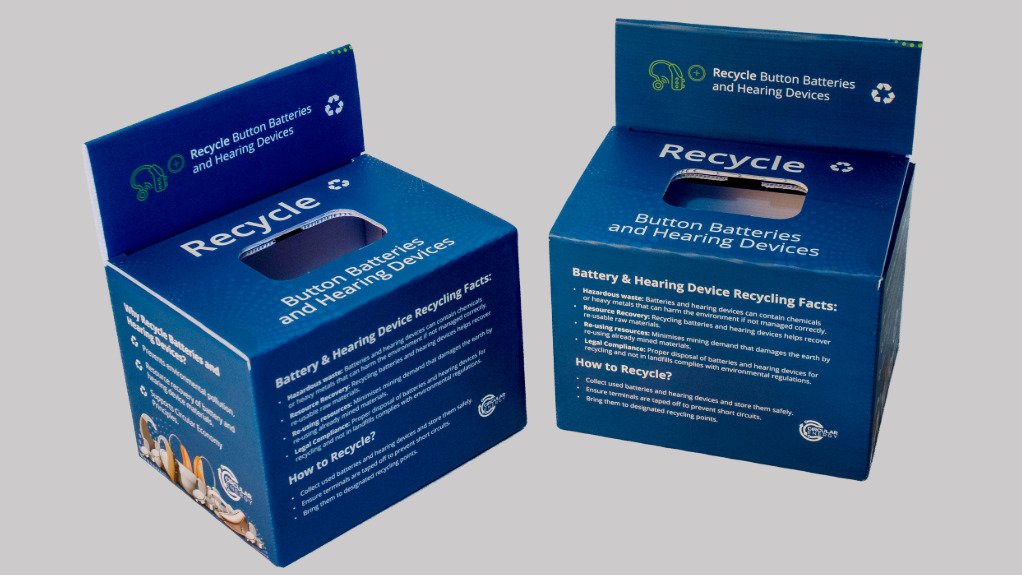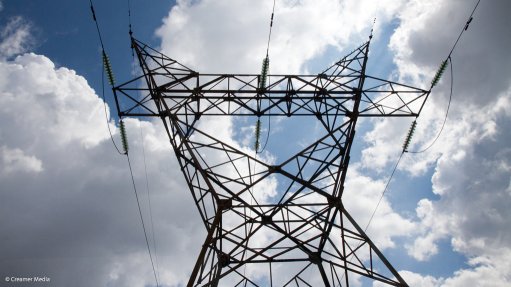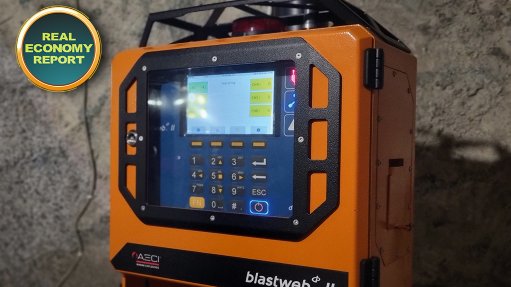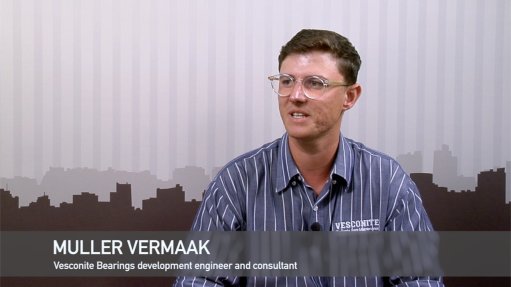Partnership formed to responsibly dispose of end-of-life hearing devices, batteries
Used or end-of-life hearing devices, button batteries and related electronic and electrical equipment will be diverted from South Africa’s landfills, owing to a collaboration between Producer Responsibility Organisation (PRO), Circular Energy, the South African Speech-Language-Hearing Association (SASLHA) and the Audiology Private Practice Forum (APPF).
The bodies have developed a take-back system for the equipment, which will see hearing device and button battery collection containers placed at audiology practices, private and State hospitals and schools for hearing-disabled children throughout the country, ensuring the responsible collection, recycling and environmentally sound processing of the equipment.
Circular Energy CEO Patricia Schröder says the initiative is aligned with the extended Producer Responsibility Regulations of 2020, implemented in January 2022, aimed at ensuring the effective and efficient management of identified end-of-life products.
“As a Department of Forestry, Fisheries and the Environment- (DFFE-) registered PRO, we assist our producer members in becoming compliant with these obligations. As partner members, SASLHA and APPF wanted to not only encourage the safe and environmentally sound disposal of equipment, but also to raise awareness around the hazardous nature of some of the equipment, especially the button batteries.”
Schröder says the responsible disposal of button batteries is made more difficult because they are small and easily thrown into a bin.
Considering some button cells are made up largely of a known neurotoxin, mercury, while others contain substances that also need to be carefully managed, she argues that they should not be disposed of in the conventional waste stream or in ordinary battery bins.
Schröder further points out that many of South Africa’s general landfills are located on top of water aquifers or close to rivers, meaning that there is a danger of the highly toxic mercury leaching into the country’s groundwater or river systems.
Moreover, heavy metals, combined with other dangerous battery elements such as lithium, can result in fires at landfill sites.
“That’s why it is vital that the disposal of batteries is properly managed – to protect natural ecosystems and to prevent any direct danger to human health and the communities that drink directly from the country’s river systems,” warns Schröder.
Circular Energy’s research found that large volumes of button cells are used in medical devices or equipment, specifically hearing and other small devices.
While these types of batteries are also integrated into watches and small tech, many can only be removed using special tools and processes. The non-integrated batteries, which can easily be removed and replaced by consumers, have thus become the organisation’s most urgent priority.
In addition to placing collection containers at audiology practices, Circular Energy will place them at various hospitals and schools that are eager to collaborate.
By placing the containers in places that are convenient for consumers, Circular Energy hopes to significantly reduce the amount of button batteries and hearing devices that go to landfill.
“We had to think of a cost-effective way to do this. It would cost too much to send a vehicle to pick up two little button cells from each consumer, for example.
“When the audiology practices have collected a certain volume of batteries and devices, we then collect the containers and send their contents off for processing whereby various materials are recovered in a recycling process for supply into secondary markets and to support circular systems,” explains Schröder.
Circular Energy urges South African consumers to drop off their button batteries and spent hearing devices at their local audiologist.
Consumers can also take their end-of-life items to Hirsch’s Home Stores and Woolworths where drop-off containers have been placed for responsible disposal of portable battery waste for their material recovery and diversion from landfills to the appropriate accredited facilities.
Comments
Press Office
Announcements
What's On
Subscribe to improve your user experience...
Option 1 (equivalent of R125 a month):
Receive a weekly copy of Creamer Media's Engineering News & Mining Weekly magazine
(print copy for those in South Africa and e-magazine for those outside of South Africa)
Receive daily email newsletters
Access to full search results
Access archive of magazine back copies
Access to Projects in Progress
Access to ONE Research Report of your choice in PDF format
Option 2 (equivalent of R375 a month):
All benefits from Option 1
PLUS
Access to Creamer Media's Research Channel Africa for ALL Research Reports, in PDF format, on various industrial and mining sectors
including Electricity; Water; Energy Transition; Hydrogen; Roads, Rail and Ports; Coal; Gold; Platinum; Battery Metals; etc.
Already a subscriber?
Forgotten your password?
Receive weekly copy of Creamer Media's Engineering News & Mining Weekly magazine (print copy for those in South Africa and e-magazine for those outside of South Africa)
➕
Recieve daily email newsletters
➕
Access to full search results
➕
Access archive of magazine back copies
➕
Access to Projects in Progress
➕
Access to ONE Research Report of your choice in PDF format
RESEARCH CHANNEL AFRICA
R4500 (equivalent of R375 a month)
SUBSCRIBEAll benefits from Option 1
➕
Access to Creamer Media's Research Channel Africa for ALL Research Reports on various industrial and mining sectors, in PDF format, including on:
Electricity
➕
Water
➕
Energy Transition
➕
Hydrogen
➕
Roads, Rail and Ports
➕
Coal
➕
Gold
➕
Platinum
➕
Battery Metals
➕
etc.
Receive all benefits from Option 1 or Option 2 delivered to numerous people at your company
➕
Multiple User names and Passwords for simultaneous log-ins
➕
Intranet integration access to all in your organisation


















